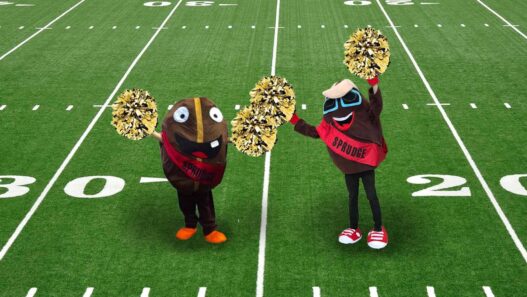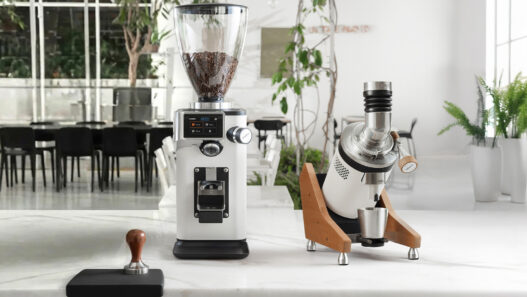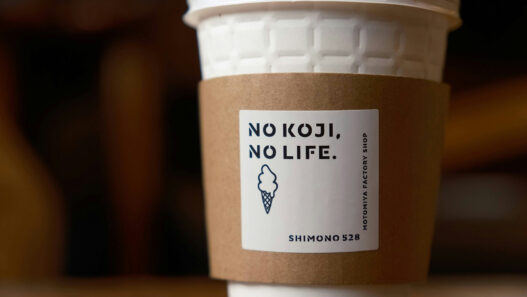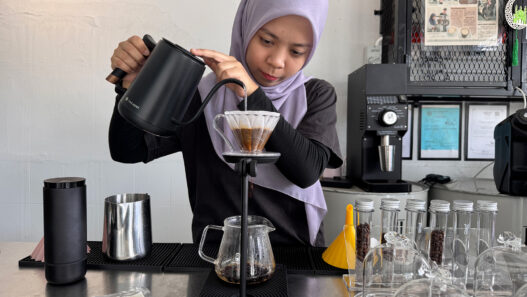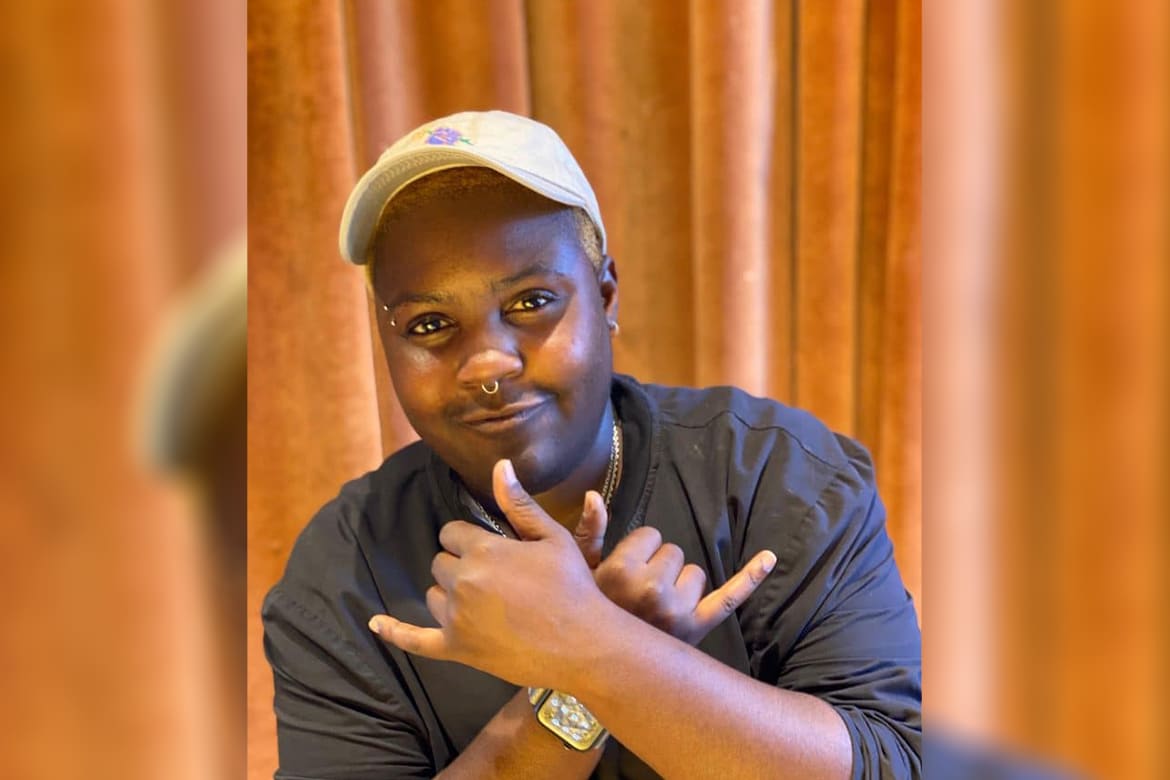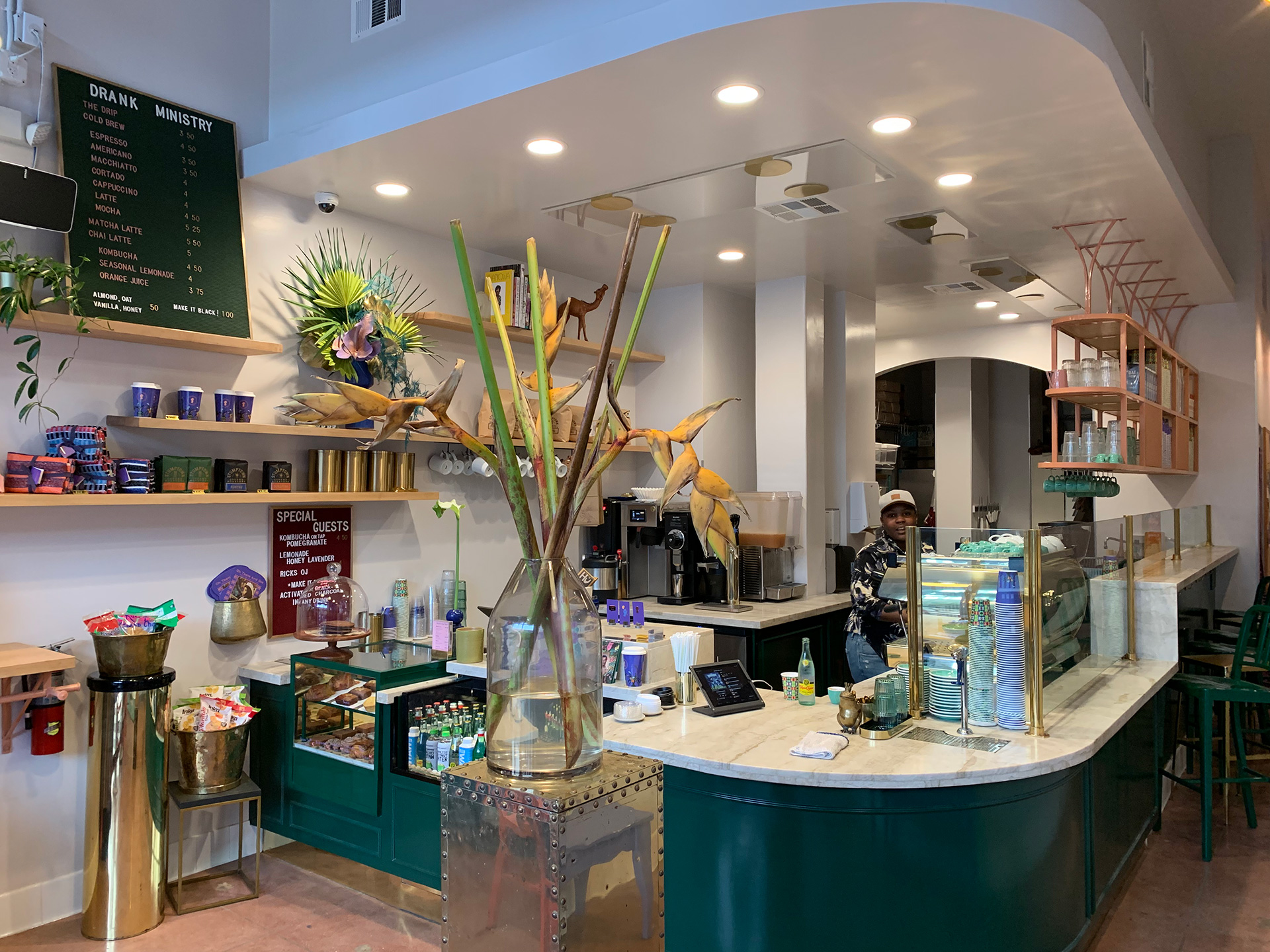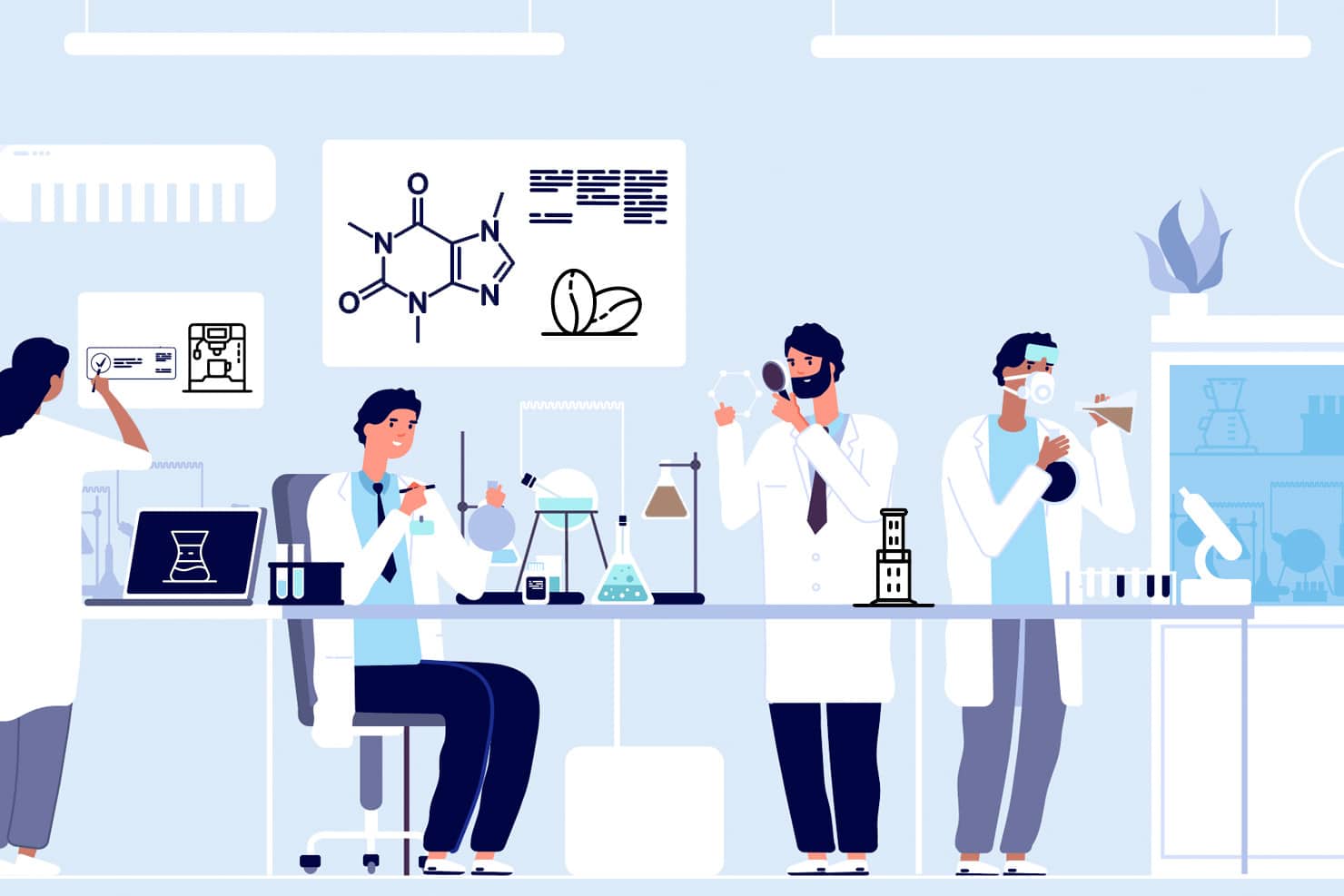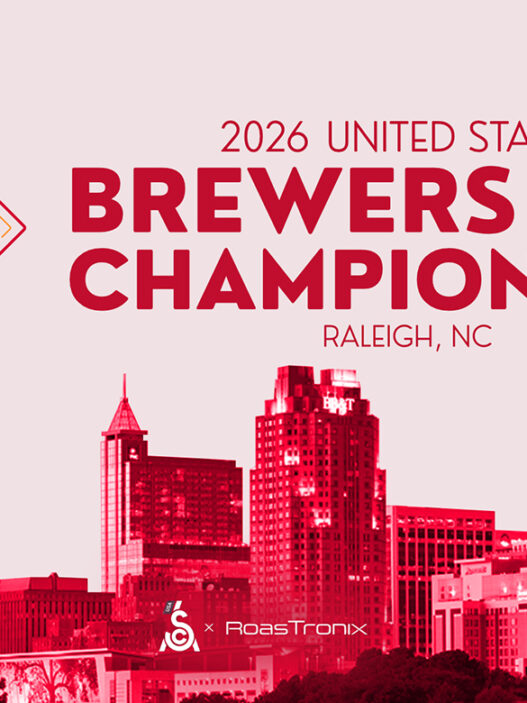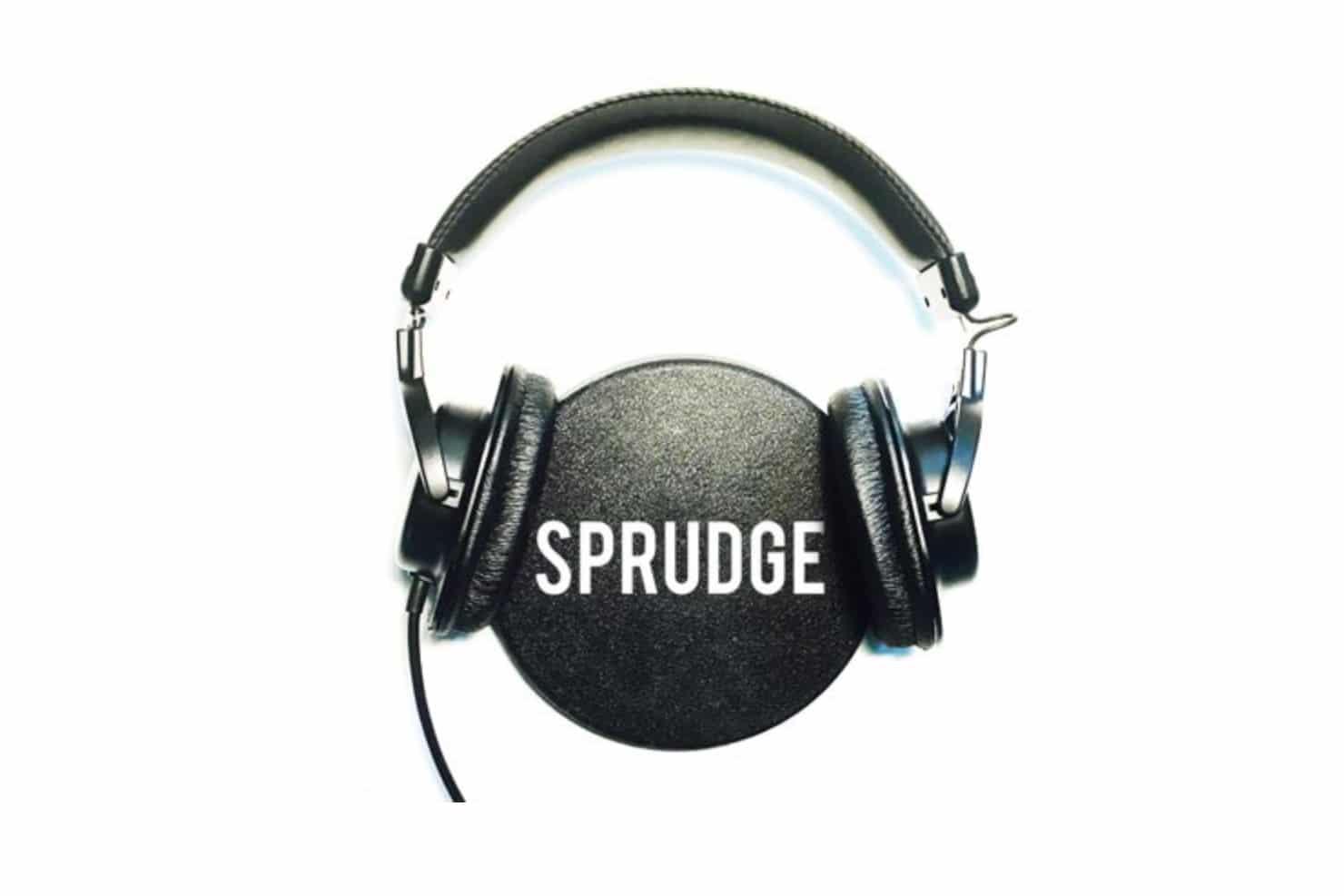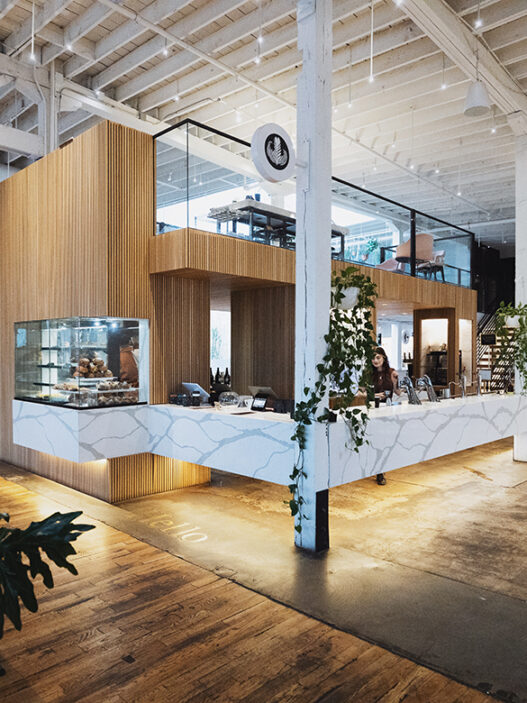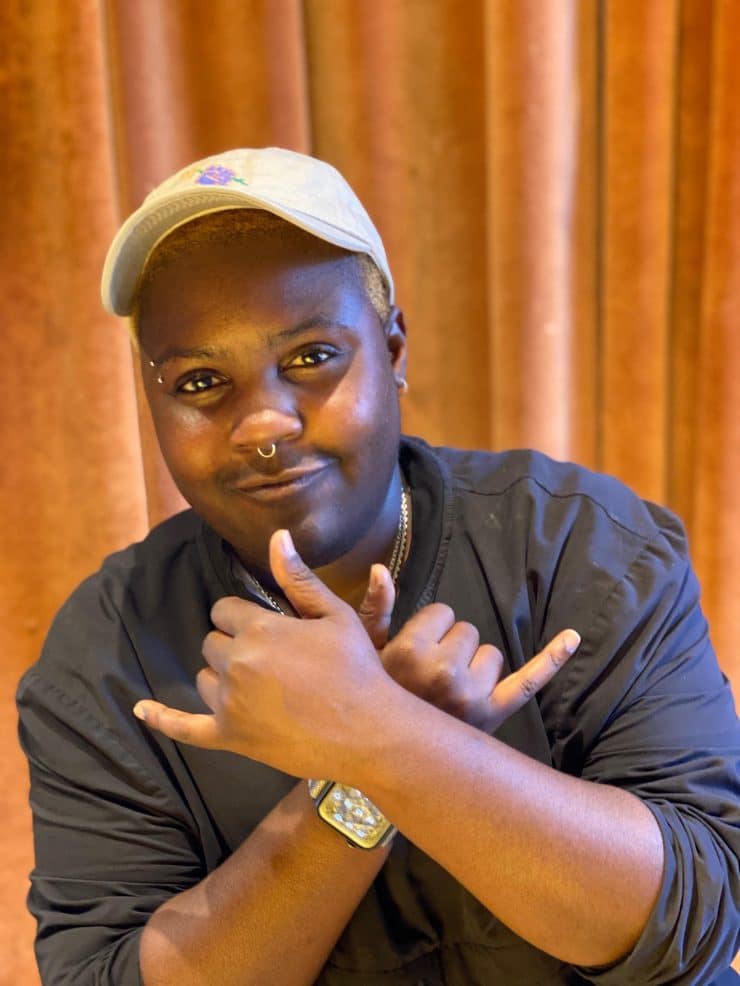
Andru Jones is a career coffee professional based in Los Angeles. A longtime part of the team at Intelligentsia, in 2019 Jones teamed up with Marcus and Moses Harris to help open Bloom & Plume Coffee, where today they work as general manager. As a part of today’s spotlight feature on Bloom & Plume, we’re twinning that story with an in-depth interview with Jones, who spoke to Sprudge about their experience managing the cafe through an unprecedented and historic first half of 2020. From COVID-19 shutdowns to a massive outpouring of support to Black-owned coffee businesses, Jones’ organization and strategies have helped the cafe survive—and thrive.
“I’m a barista’s manager because I mostly identify as a barista,” Jones tells Sprudge. “I remain with the barista experience. I remember all the ways that I felt weird, and that’s led me to create a structure with appropriate boundaries.” Andru Jones was interviewed from Los Angeles.
This interview has been lightly edited and condensed.
Hey Andru—thanks for speaking with me. Take us back to March, with the first round of shutdowns in Los Angeles. What were those early days like for Bloom & Plume?
I have this very distinct memory of the days leading up to coronavirus shutdowns in March. It was business as usual, but a couple of days before the official stay home order was issued, I noticed this dramatic change in the energy of my staff on bar. The language of the pandemic was all around us—you must wear a mask, you must wear gloves—and it was very clear something was going down. I knew very early on that I had to shut this cafe down, because the energy of the staff wasn’t good. They looked scared, they looked upset, and that’s not okay. And if this is actually happening, we need to take a step back, shut down for as long as required, and be safe, because that’s my largest boundary. Safety for employees is something I’m very vocal about.
I spent two months in quarantine, and at first I was busy just reading up on history, learning about the largest epidemics we’ve had in the past like Spanish Influenza and what it did globally in terms of culture and lifestyle transitions. Studying prior pandemics my first thought, and this taught me that before we can feel culturally safe again there are a lot more pandemic stages that need to happen. I knew I needed to create a structure that would be sustainable in the long term, not just a system that’s good for like a few months. This is about much more than just adding plexiglass, although I know it can be part of an incredibly effective response for cafes.
I am really grateful for Maurice and Marcus [Harris], the owners of Bloom & Plume. They have recognized my efforts and passions, and allowed me to do whatever I wanted in terms of structure change in the cafe under COVID.
When did you close?
We closed March 14th, a few days before the mandated statewide closures.
How long were you closed for?
We re-opened May 14th. So two full months.
What specific steps did you take when reopening came? How did you approach this reopening work as a manager?
First, we set up a MyStore as a program for delivery drivers because people weren’t leaving their homes yet, and we ran that for a while. It was a really clean system, but during the early stage of reopening we didn’t have as much exposure and didn’t have that much traffic. I remember having several conversations with the owners that were like, we want to figure out how to draw more customers, my squad is trained to the nines, they’re sitting around excited and waiting for a busy rush… but it hasn’t shown up yet. And that’s my background personally, working for high volume shops, and I thrive in high volume situations with teams. I recognize the biggest flex and strength of any coffee bar is retention of staff, and that’s the heart behind why I do things the way that I do. But the number one priority is the staff, so how can I create the warmest hospitality experience I can during COVID while continuing to push boundaries to keep my staff happy?
I decided to create a boundary at the doors and say customers are not allowed inside these doors because the staff need a safe space. We’ve created social distancing lines for pick-up and online orders. I have given my staff resources, every single boundary and quote unquote rule is clearly for their benefit and so they’re gung ho and calibrating on that. I have eight marked disposable glove stations in our small space. I think that’s the biggest thing—making the staff comfortable, and how that can be felt by the customer. It’s a reality. So instead of coaching, you create resources.
And so that’s the system now? No interior entry for customers?
Yes, that’s right. Customers aren’t allowed to come inside the space, but we have an efficient and caring system operating for every single customer. It’s all by name; we have our social distancing line with a barrier set up, but it’s all by name, and this is something we keep hearing in our online reviews. Our orders are coming out quickly because of how we flow, and our guests still feel engaged and cared for. This system has helped us keep up with the increase in volume, which is a whole other part of this conversation.
Well—tell me about it! And then June came and with it the rush?
Yes! And then the rush came. It was a time.
Essentially overnight our number of transactions and sales quintupled. I was accustomed to staffing three people a day, most days including myself, it was like alright, we’re moseying… but then it felt like on this otherwise random Tuesday, I felt the energy coming and spoke with Moses and said, “I think it’s going to be crazy tomorrow—I’ve been paying attention to what happening on the internet and especially in coffee and I think we’re going to pop off.” And he said okay, monitor it. The next morning—I had two employees who did $1,000 in sales in 55 minutes. I immediately showed up to help, and then a friend of mine who used to work at Bloom & Plume saw what was happening on the internet and asked if I needed help—I didn’t even have time to respond actually, they just showed up after sending the message and started helping us immediately.
This must have been pretty intense to work through. How did you keep it all in front of you? How did you support your team?
Something I’m incredibly proud of is the volume we did, which only increased over two weeks solid. It got crazier every day. In the middle of that, where’s my time to interview and hire new people and and train folx? The only relief I had was in how we had the bar set up, which is very standard to specialty coffee, and so any of my friends who worked in specialty could run this bar with a five minute walk around. I posted on my personal Instagram story and was like “Hey LA baristas! Like, obviously Bloom & Plume is so grateful for the support for Black business and Black people in speciality coffee; it’s a long time coming, but it came rather suddenly!” I basically said that while being very attendant to the energy of my staff and myself, if anyone else cared to roll through and work a guest shift, I would welcome it, here’s my email.
I’m not usually a person who makes calls to action in my social media. I received 40 emails from folks pretty quickly, and not just from people who wanted to come, but people who wanted to come volunteer their time for the shop. Under the law I can’t have them come work for free, and so every guest shift still properly processed in payroll—in one pay period I processed 16 new people!—but almost all of them took their tips and wages and donated to front line Black, mostly queer organizations. I actually sat and did the math with a friend who was really gassed when they came to help out, and we figured out that through that 12 day period with new folx working shifts behind the bar donating and matching funds behind the bar, we raised over $6,000 for The Okra Project as well as the Black Trans Femme Art Collective.
That’s incredible.
Yeah, I mean, to me this was just such an incredible two-fold win. I had the ability to support my staff and community, and I was able to have our operations work, to trust in the structure I created, and see if we could handle volume under COVID rules. I had to trust in our systems, and they ran really well and my core staff felt okay. I had the ability to give them days off and check in with their energy—I’m the kind of manager who walks around and every two hours I check in and have you drink a glass of water—and I also got to work with coffee friends I never thought I’d get to work with, or former colleagues, people I worked with at Intelli five years ago and things like that. It was incredible, an incredible highlight of the specialty coffee community coming together in this time. The folx involved were also well aware and we also feel the same thing, that it’s such an important story in terms of highlighting what the community looks like right now.
Reconnecting with people is really cool. And now there’s a lot of attention on Bloom & Plume—local press, national press. What has this been like for you?
Well—I’ve been at Bloom & Plume since the very beginning. I’m originally from NC, but I’ve been a coffee pro in Los Angeles for a long time, and have stayed low key and little bit more background on that, which is something I’m processing. Staying behind the scenes is important because I know what it’s like to be a barista, but also as a Black trans person in coffee, I just never considered there would be any sort of spotlight on my work. I have remained very lowkey for years, even though I worked with Intelligentsia in Los Angeles, worked my way up in their retail management program. When I met Maurice and Marcus, I felt like I really respected their mission. There was something about the first conversation we ever had that made me feel like, this is it. I’m going to put everything here.
Have things slowed down just a bit now since those June highs?
Yes, a bit. This past week was a seamless week. The reviews online are like, we’re so fast, we’re so nice. We’re maintaining high volume, although unfortunately, the vocal movement for BLM has started to quiet down. And that was an anxiety of mine, honestly—will we stay busy for 2-3 weeks or will we go right back to normal? I took the chance of saying, you know what, with this exposure, I’m going to try and do right by it and prove that Black people have been doing specialty coffee the best, and have been for a really long time.
The systems we use here have had layers of stress test now, and in terms of safety in the workplace, we do it right the first time every time. What that truly looks like is thinking incredibly deeply about what safety looks like on a human level. I’m a baristas manager because I mostly identify as a barista, and I remain with the barista experience. I remember all the ways that I felt weird, and that’s led me to create a structure with appropriate boundaries.
Tell me more about the boundaries.
Well, the biggest one goes back to allowing customers inside the space. But it’s also things like, we provided disposable gloves and masks for everyone on staff from day one, every single day. We all have masks, we all have gloves, they are readily available because I believe folks will do what they have resources for.
I spent an entire week before we reopened reorganizing the store and getting stocked back up and ready for service. I took a sobering look at the space from both the customer end and the employee end and tried to make something that would feel great for everyone. We have a contactless Square card reader on a big block that’s more than six feet away from where my staff stands, on a floating iPad. We take an order verbally, we ask for a tip verbally, they pay on a card, and there’s hand sanitizer. Everyone is in gloves and masks. And there’s an online store where you can order anything that you might walk up and order for pick-up.
When we bag up your order to take with you, the entire exchange is from a six-foot-plus distance. Both parties are wearing masks. And while I understand the risk of interacting with the general public, there are things we can do to help alleviate the mental anxieties that come from that. You try as hard as you can. That’s the solution. I want to create a structure where it looks like we tried as hard as we can.
I think our staff really appreciates that the inside of our cafe is a very safe space. I consistently will let them know of COVID testing sites near us. As the leader there I consistently take COVID tests and keep them updated, and I encourage them to do that as well. Staffing is difficult but it’s a beautiful undertaking and part of my job as manager. The language I use is that honestly, I will be mad if you feel anywhere near sick and you come to work. I don’t care if it’s ten minutes before. I want to take away that pressure; I remember being in that position, feeling guilty and afraid of retribution if I wasn’t feeling well before my shift. I want to flip that entire script and say no if you don’t tell me you don’t feel well, that’s when it’s bad. Because that’s how much I support your health and public health. This mindset should have existed before the pandemic but now it has given me the ability to think deeply about the health rights of everyone and make space for that.
What happens next for cafes in Los Angeles, and for Bloom & Plume?
I would say I truly don’t know what the future holds in terms of more announcements and shut downs. I know that in a certain sense spaces like ours, that serve to-go only and sell essentials, which means pre-packaged foods, can technically be classified as a grocery as long as you’re following certain guidelines. Two weeks after reopening we got a visit from the Health Department, and it was like, “Oh okay, this is a really big test of the structure we built!” I passed with flying colors and was called impressive. And so yeah, as long as we keep selling grocery items, unless they redefine what grocery means in a new shutdown Bloom & Plume will be able to remain open.
I am the general manager, but I’m not the complete decision-maker. If our numbers for COVID get to a certain point in the city or here in our neighborhood, once again I’ll have to make a decision with Maurice & Moses based off the energy and emotional safety of the staff. No matter how many intuitive structures I’ve outlined, if my staff is saying they’re uncomfortable then I will take more time to reevaluate. But for right now, I’m checking in with the squad, and they feel safe. I’m prepared for what comes next, and if that’s another shutdown, I’m prepared for it, and I personally get excited for our government taking measures to keep folks home as long as they’re given financial resources for it.
Thank you.
Bloom & Plume Coffee is located at 1638 W Temple St, Los Angeles. Visit their official website and follow them on Facebook and Instagram.
Jordan Michelman (@suitcasewine) is a co-founder and editor at Sprudge Media Network and the winner of a 2020 James Beard Award for digital journalism.
Photo courtesy of Andru Jones.




